 Indians Archive
Indians Archive  Tribe Game Vault: 4/14/42. Young Shortstop Boudreau Debuts as Tribe Manager
Tribe Game Vault: 4/14/42. Young Shortstop Boudreau Debuts as Tribe Manager
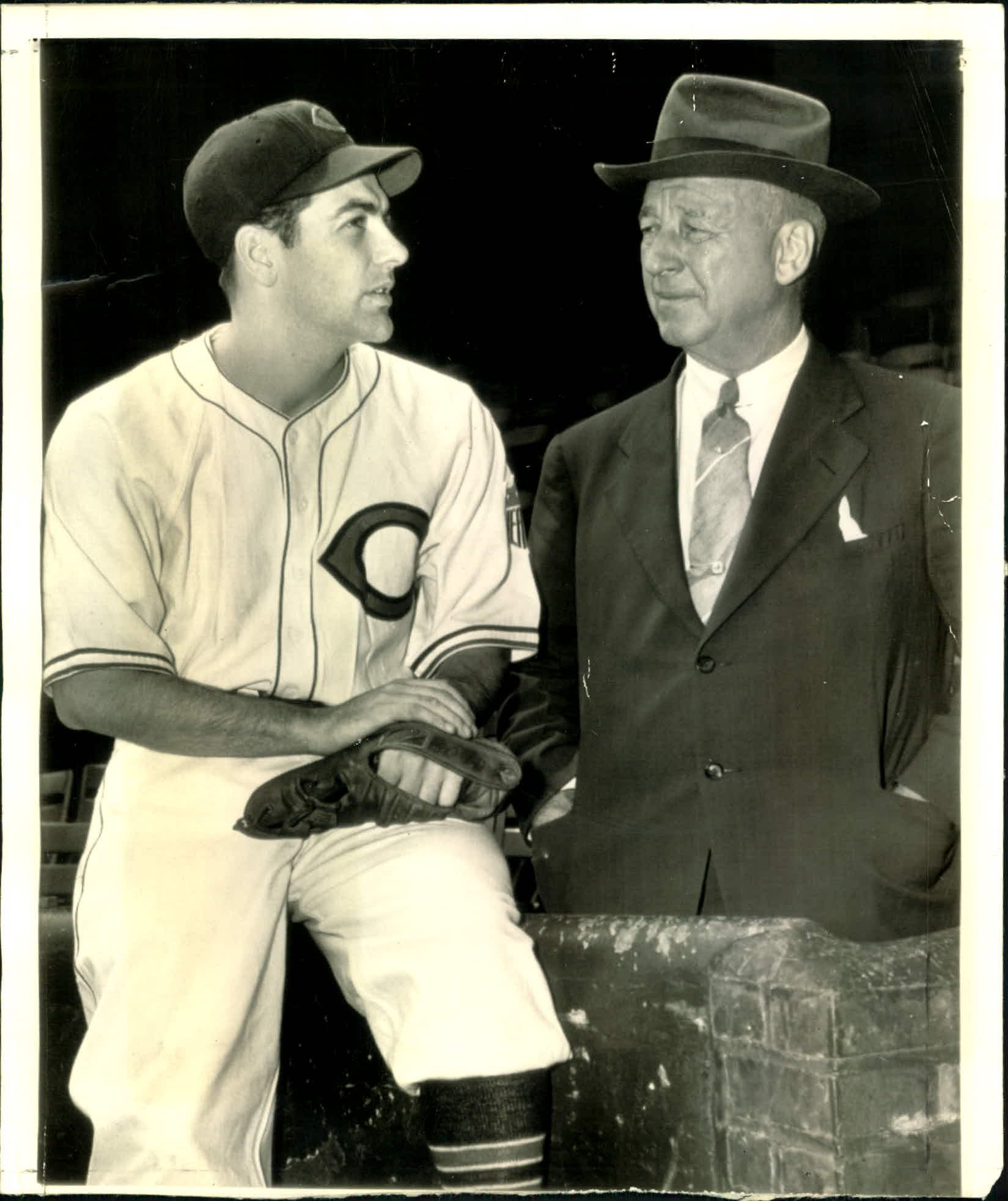 Feel like playing along? Click here. This will be our background music while we begin our stroll down memory lane. It was the top hit song in 1942 that was not named White Christmas. Be sure to come right back once it starts!
Feel like playing along? Click here. This will be our background music while we begin our stroll down memory lane. It was the top hit song in 1942 that was not named White Christmas. Be sure to come right back once it starts!
During the World War II years, the Tribe was a mess. Right- go figure. The 1940 team had imploded. Public derision on a national scale was earned by the “Cleveland Crybabies,” also profiled here. Three years earlier, manager Oscar Vitt's feisty, self-promoting manner had replaced the easygoing Steve O’Neill. The Indians won quite a bit more than they lost under Vitt, but his frustration at finishing behind the New York Yankees exacerbated his penchant for throwing his players under the proverbial bus. Most of the team rebelled, and asked for his removal via a signed petition. The baseball press descended upon the Tribe, publicized the players’ complaints, and road trips began to feature the team as the target of catcalls, rotten produce and practical jokes.
Vitt’s replacement in 1941 was the second managerial stint for Wooster, Ohio native Roger Peckinpaugh. You guessed it-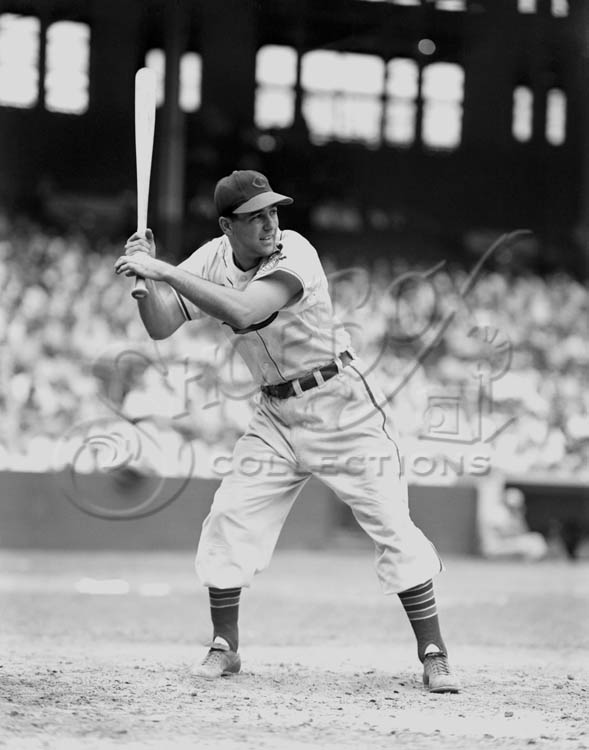 Peckinpaugh was a smiling, easygoing favorite of both the players and the fans. Funny how that pendulum can swing with sports managers and head coaches. Unfortunately, while the team started fast out of the gate, it soon stumbled and limped to the finish line. Peckinpaugh was removed as manager by Indians owner Alva Bradley, and was installed as the general manager.
Peckinpaugh was a smiling, easygoing favorite of both the players and the fans. Funny how that pendulum can swing with sports managers and head coaches. Unfortunately, while the team started fast out of the gate, it soon stumbled and limped to the finish line. Peckinpaugh was removed as manager by Indians owner Alva Bradley, and was installed as the general manager.
The Cleveland Indians began being referred to as the “graveyard for managers.” Bradley became famous for saying, “We only hire the manager. The public fires him.” Yikes. Pontius Pilate much?
One of the younger players on the team was Lou Boudreau. The third year shortstop was brash enough to mail a letter to Bradley- but not so brash that he wasn’t instantly remorseful, thinking of ways he could keep the owner from reading it. The letter was Boudreau’s bid to become the Indians’ player-manager in 1942. Reflecting on the process later, Boudreau recalled enduring a grueling, two-hour interview before the Indians’ board of directors in a hotel near the stadium. The directors took turns posing scenarios before the candidate, and asking him to describe how he would handle them. Of course, of particular concern was how he would handle players who were close to twice his age.
Boudreau was firm with his replies, and informed his interviewers that he had majored in physical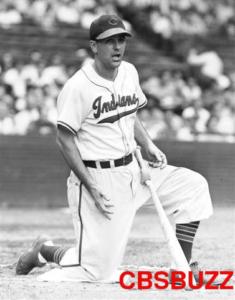 education at Illinois. He had always intended to pursue coaching. He also had been the captain of the Illini basketball team. He was confident he could handle the newspaper reporters who covered the Indians (radio coverage of the team was spotty, and there was no television coverage, of course).
education at Illinois. He had always intended to pursue coaching. He also had been the captain of the Illini basketball team. He was confident he could handle the newspaper reporters who covered the Indians (radio coverage of the team was spotty, and there was no television coverage, of course).
The directors knew that what they’d tried during the prior few seasons hadn’t worked; perhaps they did need a younger man at the helm. They hired Boudreau at a salary of $25,000: $20,000 as a manager and $5,000 as a player (I say ‘wow’- not at the amount but rather that the manager’s salary was four times as large as the player’s). A stipulation was that they were going to surround the young skipper with older coaches.
The new manager was actually more scared of facing the baseball reporters than he was of the directors. He holed up in his hotel room the night before the League Park press conference, rehearsing his statements. He knew they would ask if he could do both jobs well, at the same time.
There had been no speculation that Boudreau was even a candidate as manager. The reporters were stunned when Bradley asked them to welcome the new field boss- and the young shortstop walked into the room. Predictably, the references to ‘child abuse’ with the ‘boy manager’ were common, at first. Bradley is pictured with Boudreau, at the top of this article.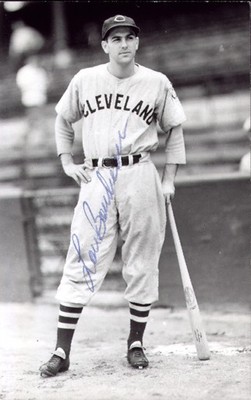
Of course, the directors spoke emphatically in support of Boudreau. One may have wondered if they'd asked so many questions at the interview because they needed to arm themselves with replies to reporters’ questions.
Is the song over? Let’s keep the party going! This 1942 hit is much better.
It was also of no surprise that in the wake of the Vitt fiasco, the players welcomed the leadership of their teammate. And Boudreau later confirmed that he learned key elements of managing by noting what Vitt had done and then doing the opposite. A key tenet of the Boudreau regime was respecting the players, and having a policy of complete honesty, both in public and in private.
About two weeks after Lou Boudreau was announced as the new manager of the Cleveland Indians, Japan bombed Pearl Harbor. Immediately, many major league players enlisted in the U.S. military. They were led by the best pitcher in the game, Tribe ace Bob Feller. Also, slugger Hal Trosky announced his retirement from baseball due to severe migraine headaches. Boudreau was classified 4-F (ineligible for duty) due to bad ankles.
When spring training began, Boudreau did reveal his inexperience by treating the players like college kids. He posted positive slogans around the clubhouse that were intended to promote the team over the individual. Within hours, they were torn down and stained with tobacco juice.
There was also a notable misstep with the press. Very early in the spring, the manager called a meeting with the reporters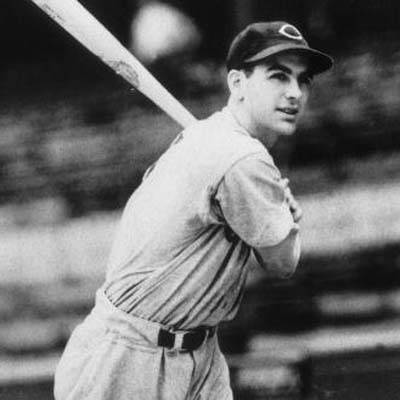 covering the team. When they had assembled, he asked them to show him their articles before having them published. This spoke volumes as to Boudreau’s naivete at the time. The reporters set him straight: they worked for the newspapers, not the Indians.
covering the team. When they had assembled, he asked them to show him their articles before having them published. This spoke volumes as to Boudreau’s naivete at the time. The reporters set him straight: they worked for the newspapers, not the Indians.
But the season began with high hopes. The infield was mostly intact, with Ray Mack at second base, Kenny Keltner at third and Boudreau at short. Roy Weatherly and Jeff Heath were holdovers in the outfield, and the starting pitchers featured such notables as Jim Bagby, Mel Harder, Harry Eisenstat, and Al Smith.
The opener was held at Briggs Stadium in Detroit, against the Tigers. Bagby started for the Tribe- although Boudreau later said he didn’t actually consider him an ‘ace’- and pitched a nice game. Boudreau had a double and a single, which were huge because reporters weren’t the only ones who questioned whether he could do justice to both jobs; the board of directors wanted to be assured as well. The Tribe staked Bagby a 1-0 lead in the first inning, but he fell behind 2-1 by the third. The Indians answered with one in the fourth, two in the seventh, and one in the eighth to go up by three. Bagby was in trouble in the ninth inning, allowing the first two batter to reach base, and Boudreau walked over from his shortstop position to talk to him. The pitcher wanted ‘the honor’ of getting himself out of trouble, but the manager decided to have reliever Joe Heving enter the game and close it out. (Boudreau said that “you can never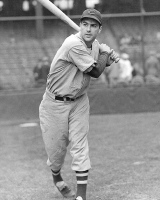 take a pitcher out too soon- only too late.”)
take a pitcher out too soon- only too late.”)
The biggest hitting hero of that first game was Les Fleming, the rookie first baseman who’d taken over first base for Trosky that season. Fleming hit a single, a double, and a home run. Keltner also homered in the victory.
The Indians would lose their next three, before winning at home, 1-0. In attendance that day, providing a morale boost, was Bob Feller, who was on leave from the Navy. By early May, they boasted a team-record thirteen-game winning streak. At the All-Star game that year- played at the stadium, 62,000-plus watched a team from the American League beat a group of major league players who were in the service- including Feller. The Tribe faded after the break, and finished in fourth place with a 75-79 record. Same as 1941.
The first season with Lou Boudreau as the Indians' manager had to be considered a success. He brought stability and consistency to the leadership of the team, and he continued to develop as a player. He hit .283, with 58 RBI.
His most noteworthy accomplishments would come later.
Thank you for reading. As usual, sources for this article include lots of stuff written over the years by Russell Schneider. In particular: Tribe Memories, The First Century; The Cleveland Indians Encyclopedia, and Lou Boudreau, Covering All The Bases.
Here's one more song from 1942.
First photo below is of Boudreau signing his first manager contract with Alva Bradley. The other photo is of Boudreau stealing home in 1948.
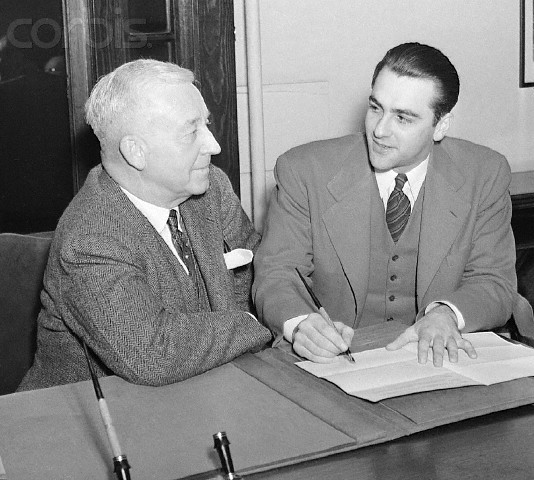
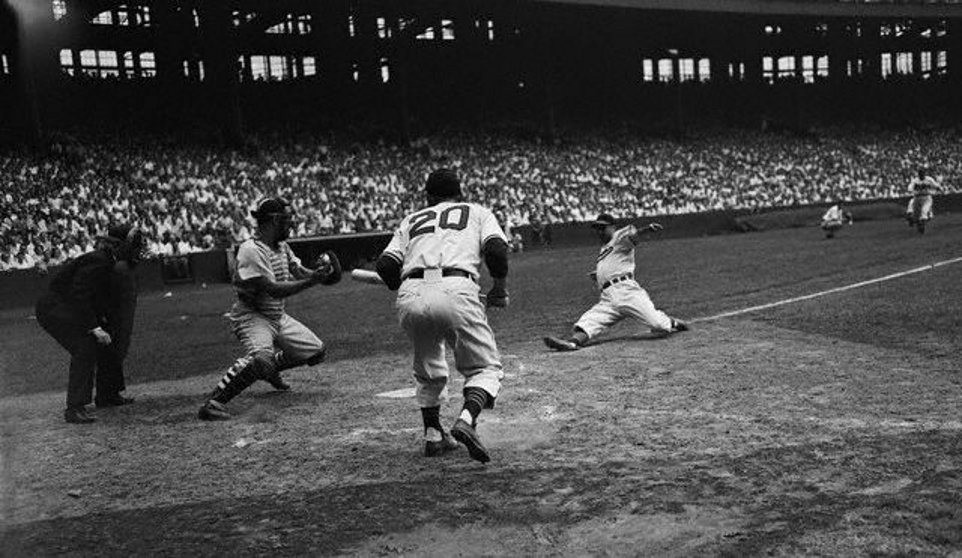
- NBA Announces 2013-2014 Schedule
- Browns Ink Sharknado
- Sharknado A No-Show For Rookie Camp
- Trent Richardson Out Until Training Camp
- Browns Sign Brandon Jackson
- Carrasco Suspended Eight Games
- Browns Add to Wide Receiver Depth with David Nelson
- Browns Need to Learn from Past Draft Mistakes
- Browns Release Chris Gocong and Usama Young
- Browns Missing on Grimes Disappointing, But Not The End
The TCF Forums
- Chris Grant's first 3 drafts
Kingpin74 (Tuesday, January 21 2014 10:13 AM) - The 2014 Offseason Thread
googleeph2 (Tuesday, January 21 2014 9:36 AM) - 2015 Recruiting
furls (Tuesday, January 21 2014 6:57 AM) - Mike Brown
YahooFanChicago (Monday, January 20 2014 11:15 PM) - Movies coming out
HoodooMan (Monday, January 20 2014 9:34 PM) - 2014 Hoops Hockey Hijinx
jpd1224 (Monday, January 20 2014 4:44 PM) - 2014 Recruiting
jclvd_23 (Monday, January 20 2014 2:26 PM) - Wish List - #4 Pick
Hikohadon (Monday, January 20 2014 1:26 PM) - Official- Browns Coach Search/Rumors
OldDawg (Sunday, January 19 2014 6:48 PM) - #1 overall pick Anthony Bennett
TouchEmAllTime (Sunday, January 19 2014 1:28 PM)



